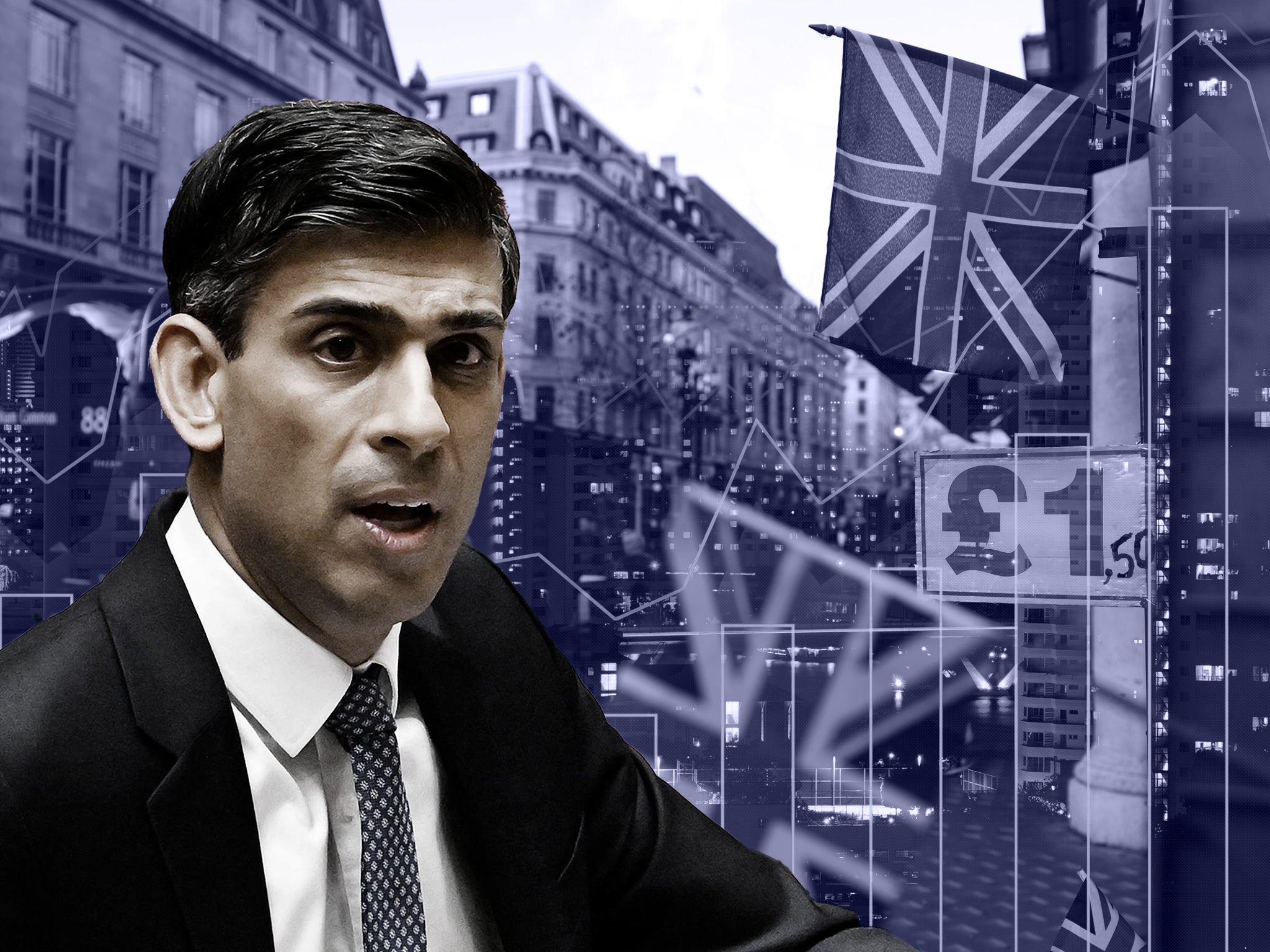If Rishi Sunak wants to grow the economy, he needs to focus on two key areas
As one of his five pledges to the British public, Rishi Sunak pledged to bring growth back to Britain. But, Emily Carver says, he must give us more on housing and childcare


Rishi Sunak projects competence. At least, that’s what his supporters would say. But in his attempt to dissociate himself from the chaotic failures of the Truss administration, the prime minister has swapped any radicalism or reformist zeal for dull, technocratic managerialism.
Later this week, growth figures will be published by the ONS. It is highly likely that they will make for gloomy reading, confirming what many suspected: that we are now in recession.
On the face of it, it is unsurprising that our economic output has taken a hit. We are still suffering the impact of the pandemic and lockdown restrictions, as well as the additional pressures caused by the invasion of Ukraine and ongoing industrial action. Yet, this does not explain why economic growth in this country has been so sluggish for so long, averaging a paltry 1.5 per cent per annum before Covid ever hit.
In his New Year’s speech, Rishi Sunak expressed his intention to get the economy growing, to create better-paid jobs and opportunity right across the country. This priority came second only to tackling inflation.
The main thrust of his plan for growth seems to be “innovation”, to which he referred eight times. Of course, few would dispute the importance of innovation in boosting productivity, improving the affordability of goods and services and creating new jobs. But pledging a few extra billion to government-chosen R&D projects and making maths mandatory up to the age of 18 were hardly the ground-breaking solutions Britain was crying out for. Rather, they reflect a man out of ideas.
Sunak knows full well that it will be the hard work and ingenuity of the British people, not bureaucrats or ministers, that will bring us out of recession. With this in mind, one might hope that a Conservative prime minister, supposedly of the free market variety, would focus on making it as easy as possible for people to start a business, grow it, employ staff and turn a decent profit.
Yet, this is exactly what was missing from the speech. Nowhere was there any meaningful mention of much-needed supply-side reforms, nor was there anything but a vague mention of his intention to “improve the regulatory system” and, at some point, reduce the tax burden.
He gave a nod to “seizing the opportunities of Brexit”, yet the promised bonfire of EU laws looks set to either be scaled back, delayed or kicked into the long grass by officials before it’s even met its opponents in the House of Lords. It’s hardly surprising, then, that so many Conservatives voters are losing faith in the benefits of Brexit.
Alarmingly, there was no mention of housing or planning reform. Sunak said he wanted people to feel “a sense of belonging in the place they call home”. But when more millennials than ever are still living with their parents, priced out of the rental market, and with little hope of getting on the property ladder, this statement felt more of a jibe than a promise.
And neither was there any mention of childcare, despite Britain having some of the highest costs in the world. Ditching his predecessor’s proposals without offering an alternative seems an enormous political oversight, particularly when only 15 per cent of 25-49-year olds say they intend to vote Conservative at the next general election. He mentioned several times how much “family matters”, yet these are the very people who will be starting families and struggling to make ends meet.
Overall, there is a sense that the prime minister is simply keeping the seat warm until the next election. Any bold proposals for growth have been firmly kicked into the long grass or scrapped altogether, be it investment zones, childcare reforms or projects to increase our energy supply.
Few would envy the multitude of crises Rishi Sunak has inherited, and yes, he deserves some credit for calming the markets. But when it comes to fixing Britain’s long-standing economic woes, it seems he’s got a long way to go. And with time on the clock running down, it may well be his risk aversion that seals his fate come the next election.
Emily Carver is a broadcaster, commentator and columnist and was head of media at the Institute of Economic Affairs until 2022
Join our commenting forum
Join thought-provoking conversations, follow other Independent readers and see their replies
Comments
Bookmark popover
Removed from bookmarks